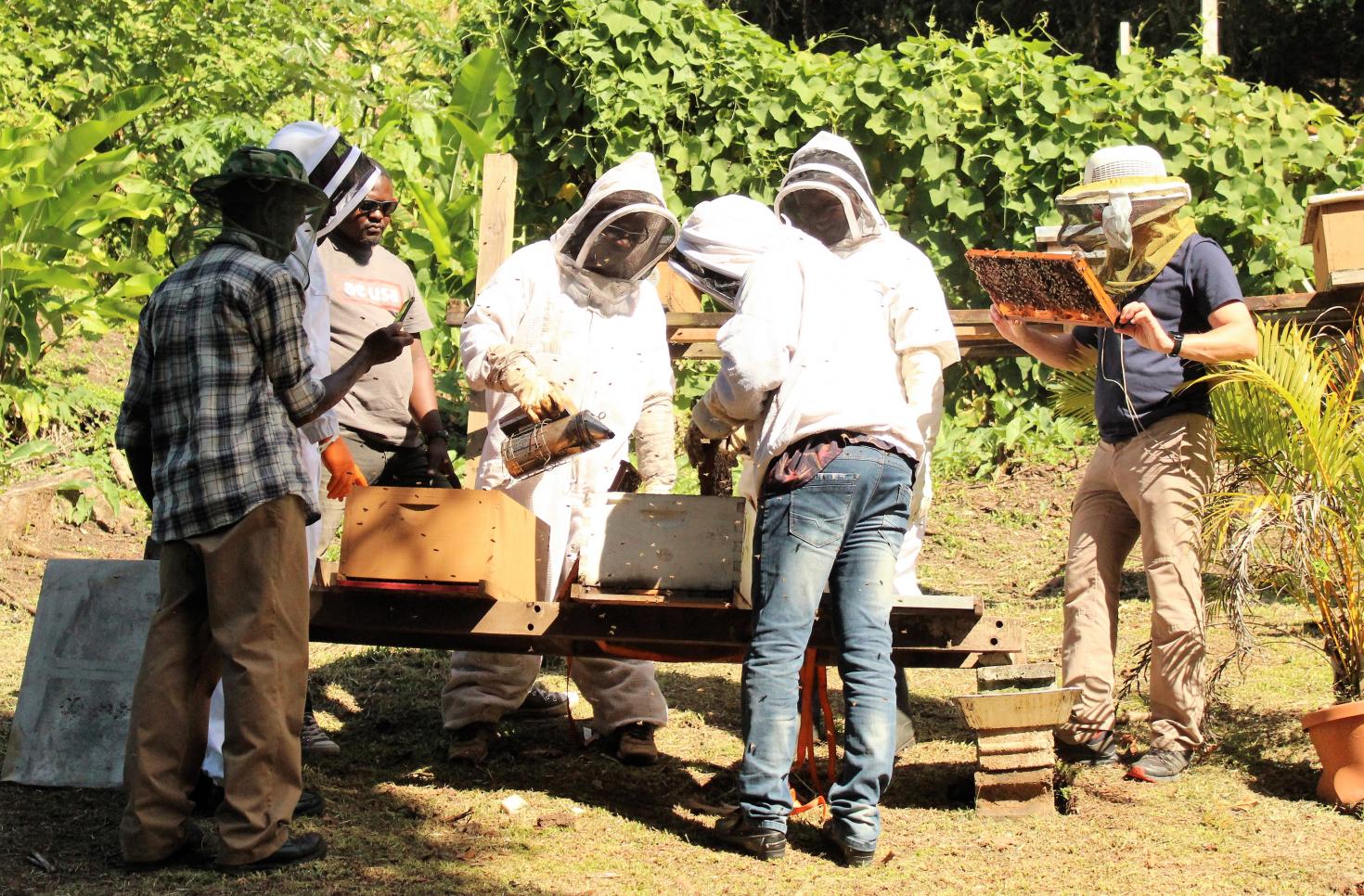The aim of the project is to boost the production capacity of local beekeepers and to design a plan and marketing strategy for Caribbean honey products.

Bridgetown, Barbados, 4 September 2019 (IICA). Argentinian experts provided training for beekeepers in Barbados and Dominica as part of API Caribe – a joint project between the Inter-American Institute for Cooperation on Agriculture (IICA), the government of Argentina and the Ministries of Agriculture of these countries, which aims to strengthen the Caribbean beekeeping industry and to boost the productivity of its hives.
Argentine specialists—Elian Tourn, President of the Pampero Beekeeping Cooperative, and Liliana Gallez, Chief Researcher of the Apiculture Research Laboratory (LabEA) of the Southern National University—visited several apiaries in Barbados and held a three-day training workshop for both new and experienced beekeepers.
Tourn and Gallez stressed the need for beekeepers to work in collaboration with researchers, entomologists, dendrologists, food scientists and biochemists in order to support the development of the industry.
During the visit, the Barbados Beekeeping Association and the Pampero Beekeeping Cooperative signed an agreement to undertake research and other joint activities.
The experts believe that Barbados is in a unique position to be able to develop its industry based on the production of authentic natural honey and its byproducts, using hives that allow the bees to feed naturally throughout the year, without the use of inorganic chemical products. They also proposed that Barbados could sell honey to tourists to support local beekeepers, thus generating income through import substitution.
In Dominica, where the beekeeping industry is in the early stages, Tourn and Gallez visited beekeepers and held an interactive workshop.
Preliminary research by the Argentine specialists provided them with useful information on the practices, hive management techniques and the biodiversity of the Dominican beekeeping industry. Dominican beekeepers also suggested areas for the development and expansion of the industry.
API Caribe was launched by the Embassy of Argentina in Barbados and the Eastern Caribbean States (OECS) on 15 July 2019.
The triangular cooperation project will be coordinated by Gustavo Martínez Pandiani, Argentina’s Ambassador to Barbados and Juan Martín Naveyra, Cooperation Coordinator for the Caribbean in Argentina’s Ministry of Foreign Affairs—through the Embassy of Argentina to Barbados and the ECS—, and by the Ministers of Agriculture of the Caribbean and IICA.
According to Martínez Padiani, “the aim of the project is to boost the production capacity of local beekeepers and to design a plan and marketing strategy for Caribbean honey products”.
He also remarked that “For Barbados and Dominica, and shortly for Saint Kitts and Nevis and Saint Lucia, API Caribe will provide an excellent opportunity to develop a new paradigm for resilience and sustainable development, while creating employment prospects for young people and women. The potential for apiculture in these countries is great, given their rich diversity of fauna and flora”.
The aim of API Caribe is to improve production and boost the production of honey and other beehive products in Barbados, Dominica, Saint Lucia and Saint Kitts and Nevis, through the support of Argentinian specialists in apiculture, testing and marketing of products.
In 2017, Argentina was the world’s third largest exporter of natural honey and spearheaded some of the best educational and information initiatives in the beekeeping industry in Latin America.
More information:
Ena Harvey, IICA Representative in Barbados.











